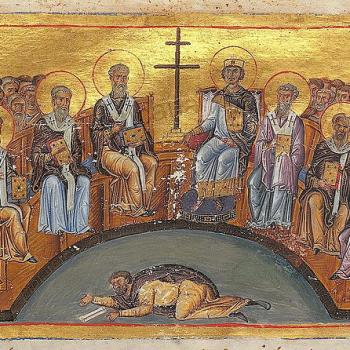While we can, and will, contemplate and try to understand the eucharist, we must keep in mind it is one of the great mysteries of the faith. Our reflections must not lead us to take away from its transcendent character. While many, if not most Christians, have a faith seeking understanding, we must not confuse our understanding and the rationale we give for our it with the fullness of the faith itself. We must not even confuse the explanation we... Read more
















